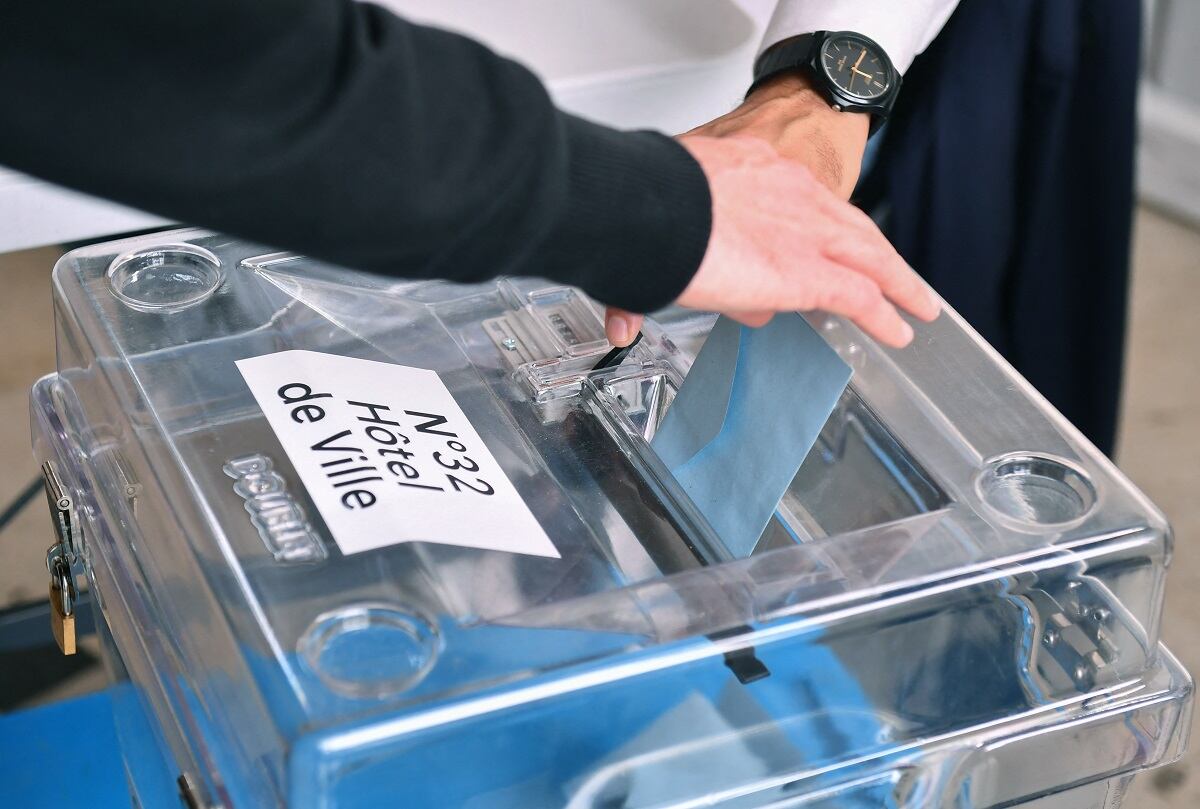
The results of the first round in the legislative elections in France leave as the most probable option a relative majority for the extreme right that either would not allow him to govern or not with a free hand, a lesser evil for the markets after the strong unrest of the last three weeks.
This relative relief weighed on the Paris Stock Exchange this Monday, which since the beginning of the session experienced a significant rebound after four sessions of successive falls.
The CAC-40 opened with a rise of more than 2% and within a few minutes that rise accelerated above 2.5% when it reached what would be the ceiling of the day with 7,688.20 points.
The rise slowed down in particular in the mid-morning, when the indicator fell below the 7,600-point mark but remained strong. Finally, the main index of the Paris Stock Exchange closed with a rise of 1.09%.
Bank stocks, the hardest hit during the three weeks that passed between the early call of the legislative elections on June 9 and the first round vote this Sunday, were also the ones that recovered the most ground this Monday.
BNP Paribas marked the second largest rise in the French index (3.59%), only behind Teleperformance (4.54%), and immediately after came the other two large French banks, Societe Generale (3.10%) and Agricultural Credit (2.83%).
On June 20, BNP Paribas was overtaken by the Spanish Santander as the largest market capitalisation in the banking sector in the euro zone and which had depreciated by 11.4% since the beginning of the month until this morning. The decline in that time had been 12% for Credit Agricole and 17.6% for Société Générale.
The risk premium relaxes
Another focus of attention at this time had also been the interest rates on French debt, which is a cause for concern due to its large volume – 110.7% of the gross domestic product (GDP) at the end of the first quarter – and the dynamics of the deficit, which in 2023 shot up to 5.5%, eight tenths more than what the Government had anticipated.
The risk premium, i.e. the interest rate differential between 10-year French bonds and German ones (which serve as a reference) reached 80 points at the end of last week, something that had not happened since 2012, at the height of the eurozone debt crisis.
That tension also relaxed this Monday with a reduction in the risk premium to 74.2 basis points.
While waiting to see in the coming days whether the respite in the political situation can last, the operators have made a first reading of the results of the polls on Sunday, in which, as expected, the extreme right achieved a resounding victory, with 33.15% of the votes, if their conservative allies are added.
Paralysis better than interventionism
Taking into account that the left coalition was left with 27.99% and that the president’s party FranceEmmanuel Macron, was relegated to third position with 20.04%, it is a victory that, although it does not completely exclude the scenario that the far-right prime ministerial candidate, Jordan Bardellaachieve an absolute majority, it does make it unlikely.
A probability that will depend in part on the strategies of the different political blocs when it comes to renouncing to present candidates in some constituencies where they have little chance of preventing the victory of the one considered the main adversary, and that has to be formalized no later than Tuesday at 18:00 local time (16:00 GMT).
What has reassured operators in the first place is that a victory for the left-wing coalition has been completely ruled out, which in its programme promises an interventionist policy made up of wage increases decided by the Government (more than 14% for the minimum wage), controlled prices and, above all, a tax increase of up to 150,000 million euros per year.
The scenario of a government of the extreme right is also greatly diminished, which although it has been abandoning or postponing a good part of its interventionist recipes or the reversal of Macron’s pension reform, continues to worry the financial media due to its clearly inclined anti-European.
That is to say, the hypothesis of a political paralysis or deadlock is opening up that, although it would not allow launching the reforms that the markets would like to see in the second economy of the eurozone, it would at least prevent reversing the changes that have benefited during Macron’s presidency.
Source: Gestion
Ricardo is a renowned author and journalist, known for his exceptional writing on top-news stories. He currently works as a writer at the 247 News Agency, where he is known for his ability to deliver breaking news and insightful analysis on the most pressing issues of the day.












